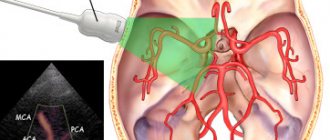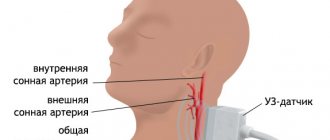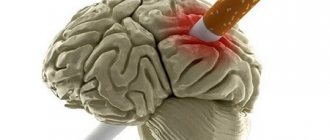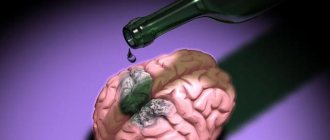How does coffee affect the body?
It's no secret that the most famous morning ritual of Russians is drinking a cup of coffee. Few people think that just a few sips of an exquisite, exciting drink can have a powerful effect on the human body. Moreover, it has both positive and negative effects on health.
Beneficial Effects
The drink is famous for its activating effect on the body.
Cheerfulness, a surge of strength, no drowsiness and no desire to soak up a little more in a cozy bed. The easiest and most popular way to cheer up in the morning or in the middle of the working day is to take a few sips of black temptation! In addition, hot coffee has a beneficial effect on other functions of the human body:
- relieves nervous tension and stress;
- improves memory;
- increases concentration;
- activates the maximum level of performance;
- lifts the mood.
Coffee directly affects leptin levels in the body, which can reduce appetite and also increase energy production.
The combination of a warm drink and medications can enhance their therapeutic effect. Coffee has a special relationship with painkillers, in particular Aspirin and Paracetamol. Thanks to this, just one tablet can cope with even severe pain.
Coffee is the fastest way to increase blood pressure. Just a few sips of a strong, hot drink (preferably with minimal added sugar) significantly improves the well-being of hypotensive patients.
An interesting fact is the study of the effect of the drink on human health. It has been scientifically proven that daily consumption of a small portion of coffee (one or two cups is enough) significantly reduces the risk of developing diabetes.
There is active debate regarding the effect of brewed coffee beans on resisting cancer.
Not long ago, scientists found that just one cup of coffee in the morning as a daily ritual increases the body’s protective functions against the development of cancer.
In addition, a strong, hot drink can eliminate even severe pain experienced by cancer patients.
Negative Impact
Despite all the benefits, coffee can also have adverse effects on human health:
- increase nervous excitability;
- disturb sleep;
- increase heart rate;
- cause stomach ulcers;
- contribute to the occurrence of gastritis;
- provoke the development of atherosclerosis.
A common complaint after a cup of coffee is nausea or headache. Coffee lovers who consume several servings of strong drink daily are at risk of acquiring the following health problems:
- addiction;
- chronic insomnia;
- depression;
- nervous system disorder;
- regular urination;
- dizziness;
- increased thirst.
Doctors assure that everything needs moderation. Excessive consumption, even beyond a healthy product, can lead to serious disruptions in the functioning of the body.
How coffee affects the brain
Immediately after a person wakes up in the morning, adenosine is produced in his brain. This substance takes part in many biochemical processes and causes drowsiness, affecting the nervous system.
When a person drinks a standard cup of coffee (200 ml), adenosine receptors are blocked. Additional amounts of glutamic acid and dopamine enter the brain. As a result, drowsiness disappears.
Coffee has been proven to improve:
- mood;
- speed reaction;
- attention;
- vigilance;
- learning ability
Attention! If you drink too much coffee, your adrenal glands produce more of the stress hormone adrenaline, which causes irritability and nervousness.
What is caffeine
Caffeine is an stimulant found in high concentrations in tea leaves and coffee beans. Recognized as one of the most powerful natural stimulants, it acts as a natural energy booster.
Due to its active effect on humans, it can cause addiction. The body gets used to the unnatural surge of energy and feeling of satisfaction, and begins to require new doses. For this reason, caffeine is called a legal drug.
Like narcotic drugs, caffeine causes a number of symptoms when its consumption is stopped. The main signs of caffeine withdrawal:
- depression;
- bitterness;
- irritability;
- convulsions;
- chills;
- pain, muscle aches;
- drowsiness;
- constipation;
- decreased concentration;
- absent-mindedness;
- headache;
- dizziness.
To prevent overdose symptoms, experts recommend gradually (not sharply!) reducing the daily dose of caffeine.
What does coffee affect most?
Caffeine lowers blood pressure, insulin, cholesterol and homocysteine
Coffee drink affects many body systems. For example, coffee affects the nervous system, the digestive system and many others, but most of all it affects the blood vessels of the body. This is due to the composition of coffee: since the vessels transport antioxidants and caffeine, the vessels are more susceptible to the effects of the drink. Natural coffee contains many useful elements that improve a person’s internal state and mood. But if you exceed the dose of coffee, unpleasant consequences can occur - most often problems with the heart and blood vessels.
Caffeine constricts blood vessels
Coffee can affect blood vessels in different ways: constrict and dilate. It affects differently not because of its composition, but because of the type of vessels. Coffee narrows the capillaries of the brain and the capillaries of the abdominal cavity, and expands the others.
As a consequence, there is an increase in pressure in the first case (with narrowing of blood vessels) and a decrease in pressure in the second (with dilation of blood vessels).
However, if you drink too much coffee, the caffeine will begin to constrict almost all blood vessels: the brain will begin to think that it does not need rest. After a few hours, your health will begin to deteriorate greatly. If a person has not slept for a long time, he will most likely fall unconscious.
Caffeine affects awakening, thinking and enjoyment
After drinking coffee, a person’s performance improves for a while, and their general well-being becomes much better. Experts explain this phenomenon by the fact that coffee can influence the blood vessels of the brain: the caffeine contained in coffee speeds up metabolism, the brain parts work much faster, and the feeling of sleep is dulled. Thanks to all this, a person does not want to sleep; on the contrary, he feels energetic.
However, overuse of this drink can lead to overload of the body. That is, completely opposite symptoms will begin, such as lethargy, loss of strength, and severe lethargy. This most often happens if a person decides to increase their daily dose of caffeine. Experts, however, do not recommend doing this. Then caffeine and other components will do more good than harm.
Caffeine increases muscle contraction
The first thing you should pay attention to when drinking coffee is blood pressure. If you have high blood pressure, it would be better to avoid drinking this drink. Caffeine greatly increases blood pressure and increases heart rate. However, coffee lovers who have been enjoying it for several years do not experience this phenomenon. In people who rarely drink it, blood pressure increases after consuming even a small amount of caffeine.
If you have coronary artery disease, then you should know that it is better to give up coffee. Doctors are sure that coffee causes heart arrhythmia. This happens in most cases after a person has exceeded his limit. From all this we can conclude that if a person does not have diseases for which the drink is contraindicated, then he can drink it. The main thing is to never exceed your daily dose.
How does coffee affect the blood vessels of the brain?
When caffeine enters the human body after drinking a cup of coffee, there is a direct effect on the blood vessels of the brain. The drink can block the action of adenosine. Adenosine is a neurohormone that causes drowsiness, slows down nerve impulses, and reduces body activity. Neurohormone receptors are located directly in the brain. Coffee neutralizes the activity of adenosine, which allows you to get rid of a person’s uncontrollable desire to plunge into deep sleep. Thanks to this, efficiency and energy increase.
Caffeine also triggers adrenaline impulses. This provokes an increase in heart rate, increased blood pressure, stimulates active blood flow to the muscles, as well as an increase in glucose levels.
Coffee also has an effect on increasing dopamine levels. Dopamine is a neurohormone in the brain, which, when concentrated in high concentrations, causes a person to feel cheerfulness, joy and a number of positive emotions. It is this factor that is the main cause of addiction, in some way dependence on coffee.
Scientists believe that consuming a hot drink can create an illusion of euphoria in the human brain. For this reason, coffee is often compared to the effects of narcotic drugs.
The effect of coffee on the blood vessels of the kidneys
Caffeine dilates the blood vessels of the kidneys and increases urination, during which not only waste products, but also calcium are removed from the body. If a person drinks 1–2 cups of coffee a day, but at the same time drinks a lot of water and eats food rich in vitamins, macro- and microelements, then the leaching of calcium does not affect the condition of bones, teeth and hair.
But 40–60 minutes after consumption, the effect of caffeine on the kidney vessels weakens, and under the influence of theobromine they narrow. Sometimes it feels like a slight pain. Instant coffee contains more theobromine than natural coffee, and accordingly, the load on the kidneys when consuming concentrate increases. Therefore, in case of kidney diseases, it is recommended to limit the consumption of coffee, especially instant coffee.
How to deal with the negative effects of coffee on the brain
As we found out, coffee can cause a number of unpleasant symptoms in a person, in particular such as headache, dizziness, and nausea. To get rid of negative consequences as quickly as possible, you can use the following tips:
- Eat any citrus fruit. This will almost instantly relieve a person from nausea and headaches caused by excess caffeine.
- Dissolve a pinch of salt. It is necessary to place a small amount of table salt on the tongue and slowly dissolve until it is completely dissolved.
- Drink activated carbon. One of the most commonly used methods when unpleasant symptoms occur after drinking coffee. Activated carbon neutralizes the effects of caffeine, improving a person's well-being. It is important to remember the dosage - one tablet for every 10 kilograms of weight.
As you know, it is easier to prevent health problems than to eliminate them later.
To avoid unpleasant consequences from coffee drinks, it is necessary to control their daily dosage.
Coffee is one of the most popular and favorite drinks in the world. For many of its admirers, there are special coffee rituals that turn the consumption of the drink into a kind of magical ceremony. However, it is extremely important to control your emotions and take caffeine in moderation. This will not only allow you to fully experience the pleasure of intercourse with coffee, but also protect the body from negative consequences.









